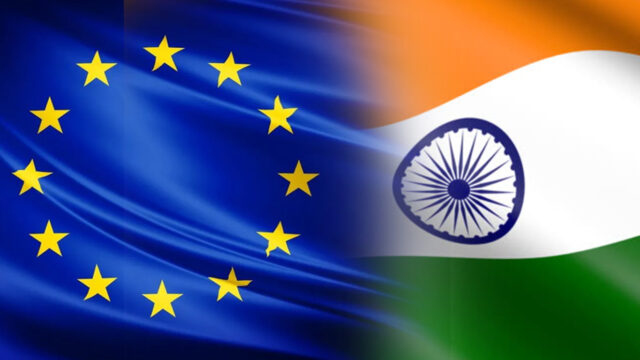After a lot of anticipation in the media, the European Union and India announced the re-launching of trade talks which were stalled since 2013. The negotiations between EU and India were initiated in 2007 for a comprehensive Free Trade Agreement. However the process got thwarted due to the differences between the two parties with respect to market access and ambitions.
Indian Prime Minister Narendra Modi acknowledged the importance of the recent EU-India summit and emphasised the need to to transform the EU-India relationship for global good. He said the aim was to fight the COVID 19 pandemic and to ensure a much more sustainable and inclusive recovery in a “digital and greener world”.
Ursula Von Der Leyen, the President of European Commission spoke about strengthening the partnership with India to discuss topics of “important geographical indications” in her address at the end of the summit. She mentioned that climate change was one of the important topics that was discussed at length. She spoke about helping India in the current crisis in every way possible by means of medical equipments support system. She lauded Indian efforts in opting for a greener development in view of the UN COP26 as well as the digital capacity of the country. She spoke of expanding the mobility and transport sector between the two regions and her speech was a truely a source of optimism for the experts around the world.
Although the agreement to re-launch talks is much welcomed, the real deal is awaited. The concern is with respect to the nitty grittier of the deal. If due to the differences that arose last time, the process was paused, will the involved groups reach any median this time? After a gap of more than six years, the two parties have decided to sort the issues and tap the potential of a prospective relationship. In fact, the reference of Von Der Leyen with regard to the geographical indications has been inferred as the threat of the Chinese ambitions in Indo Pacific. This partnership if materialised will open several avenues to promote a transparent and benefiting relationship for both.
The collaboration is a big step especially in context of the Belt and Road initiative being led by China. India and EU both have their specific interests. India has a constant love-hate relationship with China which is displaying its might in different sectors. EU is facing challenges in the post Brexit scenario and is reaching out for new bonds. The rise of the Chinese influence in the Indo-Pacific is a mutual concern for both the stakeholders. However, keeping in mind the gaps that existed the last time, a slow and detailed approach will be much beneficial. India and EU can both benefit from the partnership especially in the current scenario when economies all over the world are looking out to recover. The nuances of the the agreement are much awaited.









